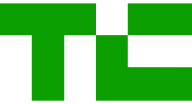Finding the right fit for a job is more than just matching skills to a job description; it’s about connecting with someone who aligns with a company’s culture, values, and future goals. The interview process plays a critical role in this journey, helping to filter through job candidates to find the best match for an open position.
This process is not only about evaluating a candidate’s answers or past experiences but also about understanding how they fit within the organization’s larger picture. A well-structured interview process is essential for ensuring that the most qualified individuals make it through to the final decision stage.
Understanding the HR Interview Process
HR interviews differ significantly from technical interviews. While a technical interview may focus on specific skills needed for a particular position, such as coding for a developer role, HR interviews aim to assess a broader range of qualities. The primary purpose of HR interviews is to evaluate a candidate’s overall suitability, including their soft skills, cultural fit, and long-term potential within the company. These interviews often serve as an initial screening to build a strong candidate pool, ensuring that those who move forward in the recruitment process align with the organization’s reputation and values.
Key Stakeholders in the HR Interview Process
The HR interview process involves multiple stakeholders, each with a distinct role in hiring. From HR managers to recruitment specialists, every team member plays a part in identifying the right talent. Understanding these roles can provide a clearer idea of how each stakeholder contributes to hiring the best candidate for a vacant position.
HR Managers
HR managers are central figures in the hiring process. They oversee the recruitment process, ensuring it runs smoothly from the job posting to the final decision. Their responsibilities include developing interviewing techniques, creating a positive impression of the company, and ensuring that job requirements are met by potential candidates. They also influence hiring decisions by collaborating closely with department heads and team leaders, using their understanding of the organization’s needs to identify top candidates.
Recruitment Specialists
Recruitment specialists are dedicated to finding the right candidate for every open position. They handle the early stages of the recruitment process, such as screening resumes, managing job boards, and conducting initial phone interviews to identify qualified candidates.
Their close collaboration with HR professionals ensures that the candidate pool is filled with individuals who meet the organization’s requirements. Recruitment specialists focus on narrowing down the candidate pool to those who show the most promise, making the overall hiring process more efficient.
HR Generalists
HR generalists have a broad range of responsibilities, including employee relations, benefits administration, and, of course, interviewing candidates. Their involvement in interviews allows them to balance their general HR duties with a hands-on role in the hiring process.
HR generalists may conduct candidate interviews and provide insights into a candidate’s potential fit based on their understanding of the organization’s culture and needs. They help maintain a balance between finding suitable candidates and managing other HR functions.
HR Coordinators
HR coordinators play a crucial role in managing the logistics of interviews. They are often responsible for scheduling in-person interviews, coordinating follow-up interviews, and taking notes during the interview process. Their support ensures that HR managers and specialists can focus on assessing the best talent without worrying about logistical details. By handling these tasks efficiently, HR coordinators contribute to a seamless recruitment experience for both job applicants and the organization.
Specialized HR Roles in Interviewing
Within HR, there are several specialized roles dedicated to enhancing different aspects of the interviewing process. Each of these roles brings unique expertise to ensure that the organization identifies and secures the best talent while maintaining alignment with its broader goals and values.
Talent Acquisition Specialists
Talent acquisition specialists concentrate on sourcing and interviewing top candidates, setting them apart from general recruiters by their targeted focus on building a pool of exceptional talent for specific roles. Their expertise lies in identifying the most promising individuals who fit both the technical and cultural needs of the organization.
Compensation and Benefits Specialists
Compensation and benefits specialists play a vital role by assessing candidates’ salary expectations and ensuring they align with the company’s established compensation structures, helping to attract and retain the right talent without disrupting existing pay scales.
Employee Relations Specialists
Employee relations specialists provide critical insights during interviews by evaluating how potential hires might affect team dynamics. They are skilled at identifying red flags that could impact workplace harmony, thus ensuring a smooth integration of new employees.
Diversity and Inclusion Officers
Diversity and inclusion officers, on the other hand, are responsible for maintaining fair and unbiased interview processes. They assess how well candidates align with the company’s diversity and inclusion initiatives, ensuring that the recruitment process supports a diverse and inclusive workplace culture.
The Role of External Stakeholders
Companies sometimes rely on external stakeholders to enhance their hiring efforts, particularly when they need specialized expertise or additional resources. External agencies, such as executive search firms, are often engaged to fill high-level roles, like C-level executives, where understanding a candidate’s strategic and leadership qualities is vital. These firms bring a deep knowledge of the industry and a vast network of contacts, enabling them to identify the right talent quickly and effectively.
In addition, consultants and contract HR professionals can be brought in temporarily to manage parts of the interview process or assist during peak hiring periods. These professionals offer flexible support, handling initial screenings or specific interview tasks to help internal teams maintain focus and productivity while searching for the right candidate.
Interview Techniques Used by HR Professionals
HR professionals use a variety of interview techniques to effectively assess and identify the right candidate for a position. These methods help evaluate different aspects of a candidate’s experience, skills, and suitability for the job, ensuring a well-rounded approach to hiring.
- Behavioral Interviews: Focus on past experiences to predict future behavior, asking candidates to describe specific situations where they demonstrated key skills or competencies.
- Situational Interviews: Present hypothetical scenarios relevant to the job, allowing candidates to explain how they would handle specific challenges or tasks.
- Competency-Based Interviews: Assess specific competencies required for the role, such as problem-solving, leadership, or communication skills, using targeted questions.
- Structured vs. Unstructured Interviews: Structured interviews follow a consistent set of questions for every candidate to ensure fairness and comparability, while unstructured interviews allow more flexibility and open-ended discussion to explore unique aspects of a candidate’s background.
Tools and Technologies Used in HR Interviews
The use of technology has become a critical component in the modern HR interview process, improving both efficiency and effectiveness. Applicant Tracking Systems (ATS) help HR teams manage job applications, screen resumes, and streamline the recruitment workflow by automatically filtering candidates based on specific criteria.
Video interviewing platforms are also widely used, particularly for remote hiring or early-stage interviews, allowing organizations to connect with potential candidates regardless of their location while still assessing essential qualities like body language and communication skills.
Psychometric testing tools add another layer of insight, enabling HR professionals to evaluate a candidate’s personality traits, cognitive abilities, and cultural fit, providing a more comprehensive understanding that informs hiring decisions and ensures the right talent is selected for the position.
HR Interview Challenges and Solutions
HR interviews come with their own set of challenges that can affect the overall recruitment process if not properly managed. One of the most common challenges is bias in interviews, where unconscious preferences or stereotypes can impact decision-making, leading to unfair assessments of candidates. To mitigate this, HR professionals are increasingly using standardized interview questions and training in diversity and inclusion practices to ensure that every candidate is evaluated fairly.
Managing a high volume of candidates is also a significant hurdle, often stretching HR resources thin. Leveraging tools like Applicant Tracking Systems (ATS) and pre-screening methods can streamline the process, allowing HR professionals to focus their efforts on the most promising applicants.
The Impact of HR Interviews on Staffing Outcomes
HR interviews significantly influence how candidates perceive a company and can directly affect staffing outcomes. The way interviews are conducted—whether candidates feel respected, heard, and valued—plays a critical role in shaping their impressions of the organization.
A positive interview experience can enhance the company’s reputation, making it more attractive to top talent. Best practices, such as clear communication, prompt feedback, and a welcoming interview environment, help create a positive experience that leaves a lasting impression on job applicants.
Additionally, there is a strong correlation between the quality of HR interviews and employee retention. When interviews effectively identify candidates who are not only skilled but also align well with the company culture, it leads to better job satisfaction and, ultimately, longer employee tenure.
Find the Right Talent with Better Interviews
Conducting interviews in HR for staffing involves many moving parts, from managing biases and ensuring consistency to leveraging external expertise and advanced tools. By understanding the roles of various HR professionals, the techniques they use, and the challenges they face, companies can create an efficient recruitment process that not only finds the right talent but also leaves a positive impression on all job candidates. Prioritizing a fair, consistent, and engaging interview experience ultimately contributes to stronger staffing outcomes and long-term employee retention.
Ready to refine your HR interview strategy? Start by focusing on these essential elements and watch your organization attract and retain the best talent.





